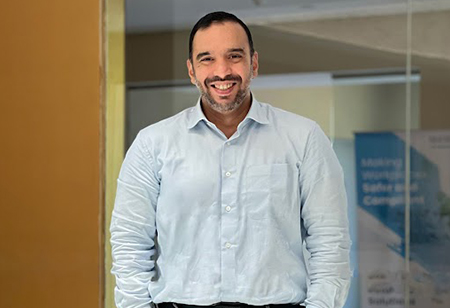
Ashwin Bhadri, Founder and CEO of Equinox Labs, India's leading Food, Water, and Air Testing Laboratories and Auditing Company, advises 500+ firms on Compliance, EHS Policies, and Critical Infrastructure. As a National Advisor to FSSAI, he spearheads initiatives nationwide, addressing food safety challenges. An accomplished speaker and author, Ashwin has trained 50,000+ individuals, authored vital publications, and leverages his innate leadership and tech-driven innovation to position Equinox as the preferred choice for testing and auditing among India's largest corporations. In an interview with Thiruamuthan, a correspondent from Industry Outlook magazine, Aditya discussed how technology is transforming food safety, modernizing water testing, and safeguarding public health through advanced air quality testing.
How is technological advancement impacting food safety testing standards in the industry?
In the Indian food industry, technological advancements have significantly impacted food safety testing standards. The implementation of advanced testing methods, such as polymerase chain reaction (PCR) and next-generation sequencing has enhanced the detection and analysis of contaminants. These technologies allow for quicker and more accurate identification of potential hazards, ensuring that food products meet stringent safety standards set by regulatory bodies like the Food Safety and Standards Authority of India (FSSAI).
What measures are being taken in the water testing sector to address evolving environmental regulations and emerging contaminants?
The water testing sector in India is actively addressing evolving environmental regulations and emerging contaminants through the adoption of state-of-the-art technologies. Advanced water testing techniques, including high-performance liquid chromatography (HPLC) and mass spectrometry, are being employed to detect and quantify pollutants in water sources. This helps the industry comply with regulations set by the Central Pollution Control Board (CPCB) and ensures that water quality meets the prescribed standards.
What role does the air quality testing market play in promoting public health and environmental sustainability?
The air quality testing market in India plays a crucial role in promoting public health and environmental sustainability. With the increasing concern over air pollution, especially in metropolitan areas, air quality testing is vital to monitor and control harmful emissions. The data generated from these tests aids government bodies in formulating policies and regulations to improve air quality. Continuous monitoring contributes to public awareness and encourages industries to adopt cleaner technologies, fostering both public health and environmental sustainability.
How does the industry collaborate with regulatory bodies to set and enforce testing standards globally?
The Indian testing industry collaborates closely with regulatory bodies like FSSAI, CPCB, and the Ministry of Environment, Forest and Climate Change. Regular consultations and feedback mechanisms are established to set and enforce testing standards globally. This collaboration ensures that testing methods align with international best practices while being tailored to the specific needs and challenges of the Indian food industry. Regular updates to standards are made in consultation with stakeholders to keep pace with technological advancements and emerging risks.
What strategies are employed in the testing industry to ensure consistent standards across international supply chains?
To ensure consistent standards across international supply chains, the Indian testing industry employs several strategies. Harmonization of testing protocols with global standards is a priority, allowing seamless integration with international markets. Collaboration with international organizations and participation in forums such as the Codex Alimentarius Commission facilitates the exchange of information and best practices. Additionally, the industry invests in training programs to enhance the skills of personnel involved in testing, ensuring that the workforce is proficient in global testing standards and methodologies. Regular audits and certifications by recognized international bodies further validate the adherence to consistent standards in the Indian food industry's supply chains.
We use cookies to ensure you get the best experience on our website. Read more...